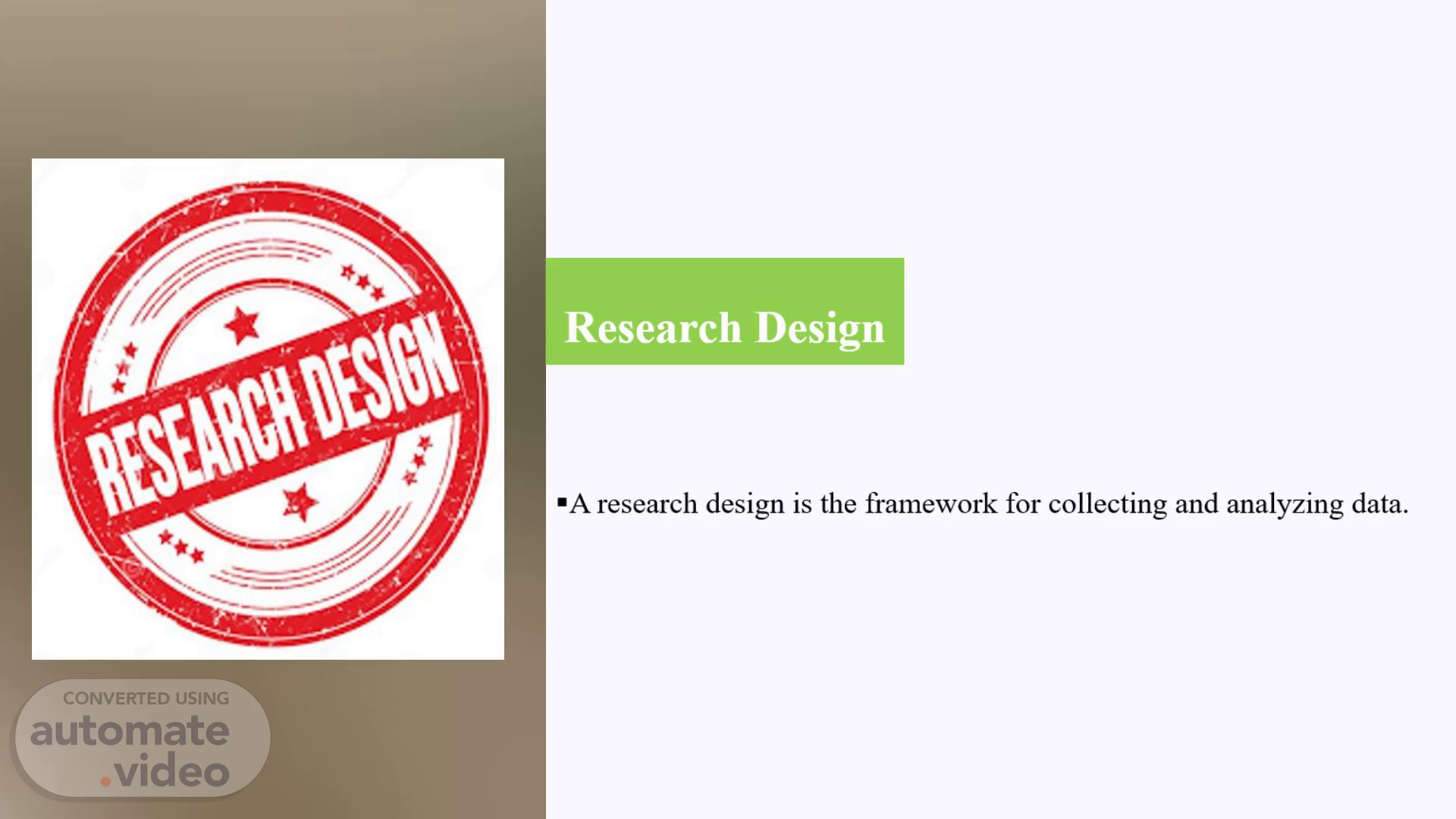
PptxGenJS Presentation
Scene 1 (0s)
[Audio] Research design is a structured plan that outlines how a study will be conducted to address specific research questions or hypotheses. It includes selecting the appropriate methods for data collection and analysis determining the sampling procedures and specifying how variables will be measured and controlled. A well-designed research plan ensures that the study is methodologically sound reliable and valid ultimately guiding the research process to achieve meaningful results..
Scene 2 (28s)
[Audio] **Experimental Design** involves manipulating one or more independent variables to observe their effect on dependent variables within a controlled environment. This design typically includes random assignment control groups and precise measurement to establish cause-and-effect relationships. Common methods include laboratory experiments field experiments and clinical trials where researchers actively control and vary conditions to test hypotheses and determine causal links. **Non-Experimental Design** does not involve manipulation of variables or control over the research setting. Instead it focuses on observing and analyzing naturally occurring variables or phenomena without intervention. Methods include observational studies surveys case studies and correlational research which aim to describe explore or identify relationships and patterns without inferring causality..
Scene 3 (1m 30s)
[Audio] The key components of research design are essential for structuring a study and ensuring its validity and reliability. They include: Research Questions and Hypotheses: Research Questions: Clearly defined questions that the study aims to answer. Hypotheses: Testable predictions or statements about the relationships between variables. 3. Methodology : The specific procedures and techniques used to collect and analyze data.